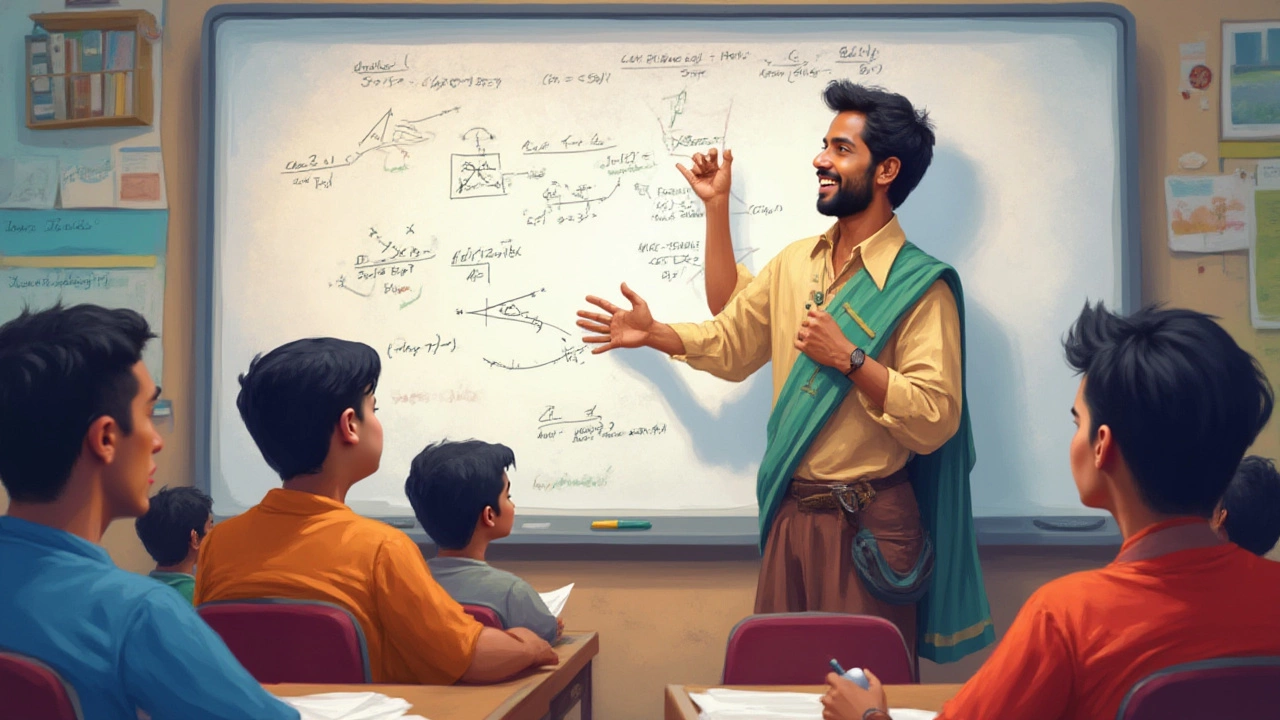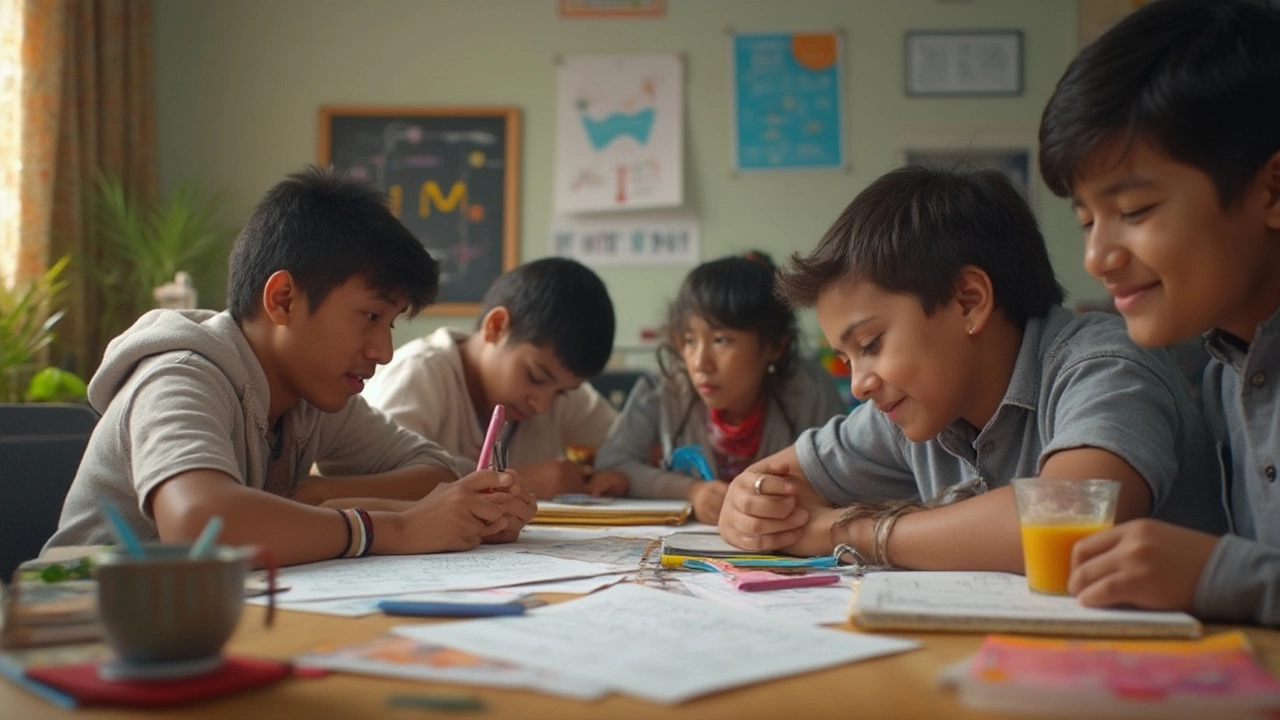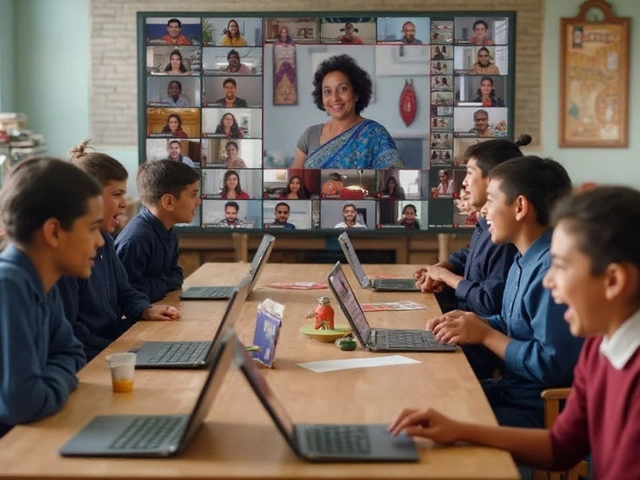If you’re aiming high with JEE, you’ll hear tons of names flying around: Kota, Allen, FIITJEE, the big badge brands with glossy brochures. Lately though, something wild happened—Physics Wallah, started by a former teacher, Alakh Pandey, flipped the whole coaching scene in India. What’s the appeal? Dirt-cheap courses, millions of students tuning in, and a no-nonsense way of teaching. But does that hype translate to a real shot at success in JEE? Or are you better off sticking to the tried-and-tested heavyweights?
How Physics Wallah Changed the JEE Prep Game
Back in 2016, Physics Wallah kicked off as a YouTube channel, just a guy in front of a whiteboard teaching physics. Sounds basic, right? But within a couple of years, the content exploded. By 2025, their YouTube channel had over 12 million subscribers, and the app crossed 10 million downloads. No other edtech brand for JEE has pulled this off on such a scale for so cheap. Traditional coaching centers—think Allen or Resonance—charge anywhere from ₹1.2 lakh to ₹2.5 lakh for a year. Physics Wallah? Their famous Lakshya and Arjuna batches cost under ₹4,000 for a full year, and even premium offline batches in big cities are a fraction of what big institutes charge.
That’s a game-changer because it ripped open access to students in small towns who simply couldn’t dream of affording Kota's fees and hostel life. Students from places most people hadn’t heard of before—like Bettiah in Bihar or small villages in Rajasthan—started cracking JEE, and when interviews rolled in, they almost always dropped a Physics Wallah mention.
The brand also picked up fresh credibility in 2023 when over 3,500 of their students qualified for JEE Advanced and almost 20,000 crossed the JEE Main cutoff. Actually, the toppers often still come from established names, but the sheer number of selections from ordinary towns is what’s rewritten the coaching map.
What Makes Physics Wallah’s Teaching Different?
The secret sauce is relatability. Alakh Pandey—his teaching style isn’t your typical formal coaching. It’s jokes, “betaaa” moments, using local slang, and just making complex concepts look like fun. For kids who’d otherwise find physics or even organic chemistry terrifying, this laid-back vibe can be a game-changer. That’s not to say the staff is only him—by 2025, the team had hundreds of teachers, many of whom are former toppers or experts from big name institutes.
>- Topic clarity: There’s a heavy focus on clearing basics and only then jumping into advanced tricks. So, if you’re lost on things like ‘capacitors in series’ or ‘buffers in chemistry,’ you’ll find simple explanations right alongside killer mnemonics and memory hacks.
- Comprehensive doubt support: They run massive live doubt sessions, so it's not just a stack of videos with no human touch. Their Doubt Engine gives you WhatsApp-style chatting with tutors (which, let’s be honest, is less intimidating than raising your hand in a 500-kid offline class).
- Daily practice problems (DPPs): People rave about their exercise sheets. They’re not fluffy—questions are tough and made to make mistakes fun rather than scary. This might be why repeaters and first-timers find Physics Wallah lessons stick longer.
- Live and recorded balance: Not everyone works on the same schedule, so they leave everything recorded. Miss a class? No problem. But if you're the type who needs a fixed timetable and structure, you’ll like their scheduled live batches.
The content’s not just for the camera, either. In 2024, a survey by Edbeat found 89% of students said they could understand topics better with Physics Wallah’s visual tricks and analogies, compared to 62% on other platforms.
Do Physics Wallah Students Actually Ace the JEE?
Let’s crush a myth: the top 10 national JEE ranks? You won’t usually find a Physics Wallah-only student up there. The highest ranks, as of 2024, usually come from Kota’s top batches or premier Delhi institutes. That doesn’t mean PW isn’t working—a chunk of students crack Main and even Advanced with solid results, especially from towns with zero local resources.
Check out this table to see how Physics Wallah students have performed (data based on 2024 official reports and student interviews):
| Year | Physics Wallah JEE Main Qualifiers | JEE Advanced Selections | Top 1000 Ranks |
|---|---|---|---|
| 2022 | 12,200 | 1,800 | 7 |
| 2023 | 19,900 | 3,600 | 11 |
| 2024 | 22,500 | 4,300 | 14 |
Looks impressive, right? There’s a catch. Most top-rankers mix resources—they take PW for concepts, other institutes for test series, and even private tutors for doubt-solving. Still, the jump in selections from rural and tier-3 cities, thanks to physics wallah's affordable model, can’t be ignored.
Something else that stands out? Retention rates. According to a 2024 Quora survey, over 72% of those who started the Lakshya batch in Class 11 actually finished it—compared to about 44% on the biggest paid platforms. The reason? Lower fee pressure and that feeling of “I’m learning from someone who gets me.”

What Are the Drawbacks or Gaps in Physics Wallah’s Approach?
It’s tempting to see the platform as a perfect saviour, especially for anyone shut out by big institute fees. But there’s a flipside. The most common gripes students voice:
- Lack of personalized attention: With lakhs of students in a batch, a struggling student might feel lost. Even WhatsApp support can’t fully match the 1-on-1 mentoring Kota classrooms give their premium batches.
- Peer pressure: Some kids, especially those used to regular schools, miss the “walking to class, sharing notes, competing with friends” routine. Online can’t fully match this energy, though Physics Wallah’s offline centers in 30+ cities try to fill the gap.
- Advanced test prep: For pushing into the very top AIR ranks, mock tests and analysis can fall a little short compared to the advanced All India test series at old schools.
- Content overload: First-timers get overwhelmed by the sheer number of videos and PDFs. If you’re not self-motivated, it’s easy to lag behind or get distracted by YouTube shorts and Instagram while "studying."
- Quality control: As they expanded, some students said the newest teachers aren’t as sharp as the original ‘faces’ of Physics Wallah, especially in offline branches.
Every student profile is different. If you’re organized, comfortable with self-paced learning, and love the smartphone-in-hand flexibility, this stuff feels liberating. But if you thrive with face-to-face lectures and high-pressure peer groups, PW online might leave you a bit cold.
How to Maximize Physics Wallah for Your Own JEE Prep
Here’s where the magic happens if you want to play it smart. Thousands of kids are using Physics Wallah, but only those who take an active, not passive, approach see serious results. A few ninja-level tips that have worked for real toppers and repeaters:
- Set a daily target, not just a list of videos to watch. If you only binge lessons, but never sit with a pen and paper, your retention tanks fast.
- Mix their DPPs with offline problem books. H.C. Verma and Cengage for physics, O.P. Tandon for chemistry, or any standard IIT problem set. Don’t just stick to one source.
- Join their live doubt sessions—even if you don’t have a question. Listening to others helps spot gaps in your own understanding.
- Pace yourself: Don’t get sucked into ‘catch-up’ anxiety if you miss a class or two. Their tools let you rewatch, pause, or slow things down. Take breaks, but stay regular.
- Form a virtual study group. Loads of students connect on Telegram, Discord, or even local WhatsApp groups to swap notes, tips, and memes. Makes the grind less lonely.
- Use their mock tests, but don’t panic at low marks. Analyze your mistakes, watch the solution, and retry the question. The biggest leaps come when you fix what makes you slip, not when you blindly rush ahead.
- Balance YouTube with their PW app. The app puts notes, quizzes, and progress tracking in one place without the distraction of meme reels.
Also, keep an eye out for scholarship tests—over 2 lakh kids have won fee waivers or free batches in the past two years alone. And if you’re near a metro city, try their hybrid or offline centers for a taste of both worlds.
Who Should (and Shouldn’t) Pick Physics Wallah for JEE?
Here’s the bottom line: Physics Wallah has thrown open the gates for millions who’d otherwise struggle with both the price tag and the intimidating culture of big institutes. It works best for:
- Students who learn better from visual, relatable teaching, not dry theory.
- Kids from small towns or weaker financial backgrounds.
- Repeaters who know their basics but want a new approach.
- Anyone comfortable using tech and not afraid to ask questions in big WhatsApp or live sessions.
You might want to think twice—or at least mix it up with other methods—if:
- You thrive best in a high-pressure offline environment, with face-to-face competition and peer motivation.
- You need super-specific, one-on-one mentoring for weak topics.
- Your goal is to crack the top 100 AIR. You’ll probably want to bundle PW with elite test series and lots of offline mocks.
Final fact bomb: In a 2025 user poll, 91% of first-timers said Physics Wallah gave them more confidence in JEE basics, vs. 51% for their local offline classes. The 2025 JEE Main results even saw five students from tiny villages, all in the top 2,000, who learned only via PW and local library books.
So, is Physics Wallah good for JEE? If you ask me, it’s not about whether it’s the best. For so many, it’s a ticket that’s finally affordable, relatable, and—most importantly—human.



